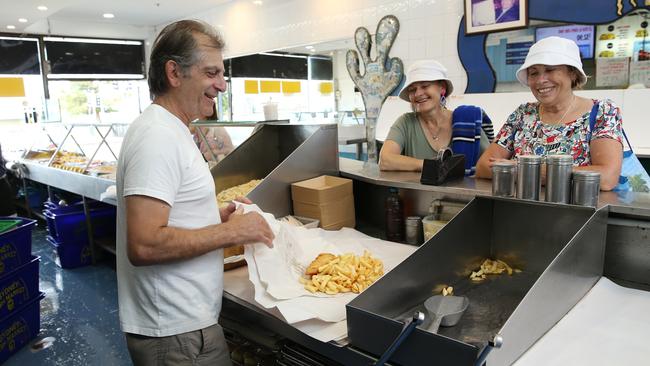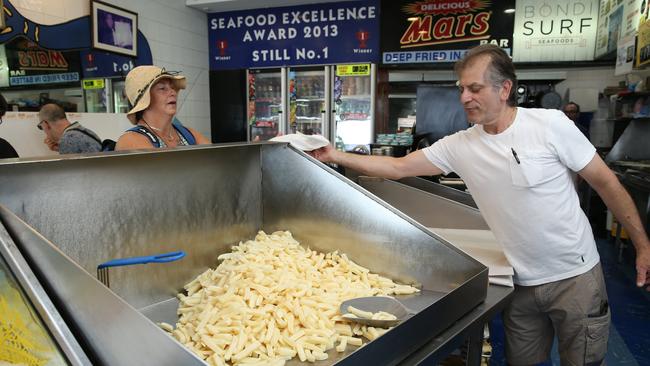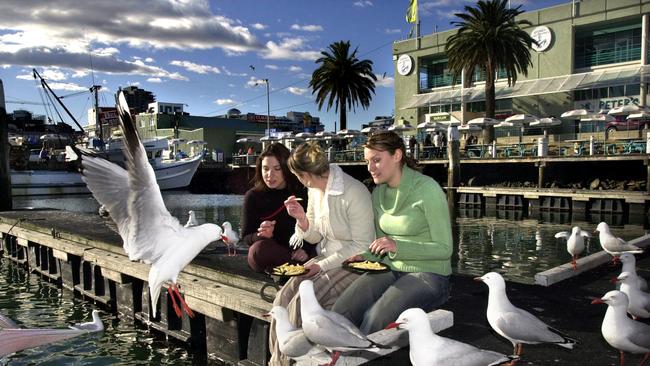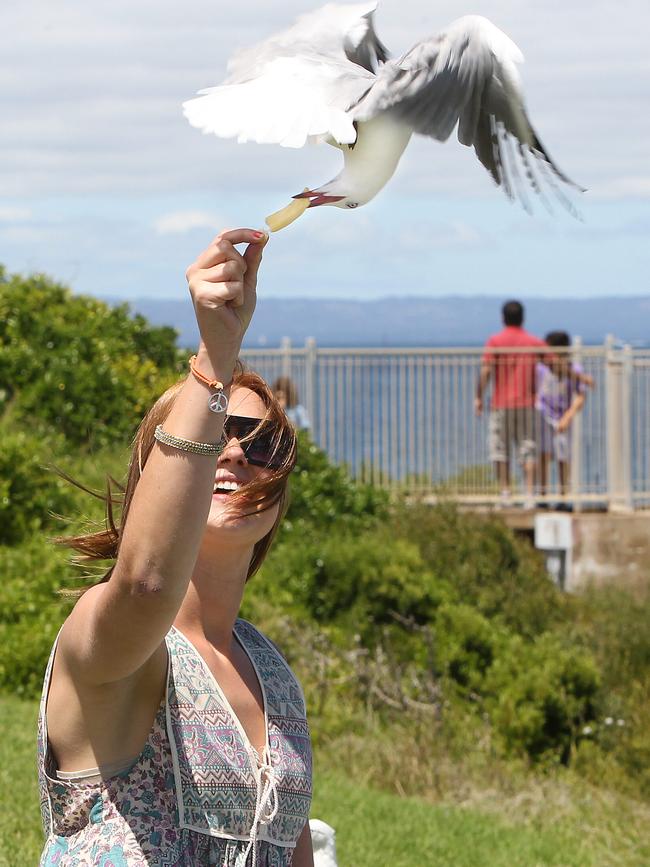Wholesale prices soar 25 per cent after heavy rains and floods
Chips on the beach - a summer tradition - has become the next iceberg lettuce as potato prices soar and Coles and Woolworths introduce buying limits.

Business
Don't miss out on the headlines from Business. Followed categories will be added to My News.
The price of wholesale potatoes has soared more than 25 per cent after heavy rains and floods in the key growing period washed away three months’ worth of supply.
The crunch has hit potatoes used mainly for processing – those frozen after being cut into chips and other products – creating a fresh setback for the hospitality sector as it recovers from three years of the pandemic.
Coles and Woolworths have also introduced buying limits as freezer shelves are stripped bare. They say it’s not certain when the restrictions will end.
The shortage has forced pubs, restaurants and fish and chip shops to source alternative supplies amid peak demand during a summer holiday break. Others have reverted to sourcing fresh potatoes, which are still plentiful, and cutting chips in-house.
For some, however, that’s not an option. At Bondi Surf Seafood, Paul Georgiou says he’s still battling another shortage: labour.
“It has certainly crossed our mind,” said Mr Georgiou, who still wakes in early hours each day to source produce from the Sydney Fish Market.
“But the difference at the time when we were cutting ourselves is that we had the manpower. Being Covid-affected, we can’t even find staff.”

Bondi Surf Seafoods is a family-owned fish and chip shop that has served beach goers on Campbell Parade for more than 50 years. Mr Georgiou has had to find four suppliers to ensure he can continue to meet demand.
“Sometimes what you’re finding is the quality can be a little bit of a task because some of it can be freezer burned, it’s a bit dry,” he said.
“I’ve complained a few times to some and they’ve replaced certain stock that I wasn’t very happy with. At the end of the day, we don’t want to provide rice or noodles with our dish, so I’ve got to source the best available chips.”
The quest for quality in a scarce market has meant Mr Georgiou has absorbed much of the cost rises – with the price of a 15kg box of chips surging from about $35 to $44 and “still rising” to fend off competition from bigger fast food chains.
This week, McDonald’s added potato scallops to its menu, with a spokeswoman saying the company was able to source enough supply ahead of the shortage.
McDonald’s sources most of its potato products from Simplot or McCain Foods.
“Our potato scallops are made here in Australia, from Australian ingredients. We worked with our suppliers to source ingredients ahead of the current shortage,” she said.

Back in Bondi, Mr Georgiou said he had so far absorbed the price hikes.
“We don’t want to put our prices up because obviously it’s going to scare people away,” he said. “Even though we’re in a position where we do sell a lot of fish and chips in summer weather because people come to the beach and want their traditional fish and chips, we’re also competing with a few fast food chains here.
“They might not give you the quality or volume of the potato but the pricing does play an impact. Most people don’t look at what they’re getting, it’s what they’re going to pay.”
Mr Georgiou expects supply to start returning to normal levels next month, when one of his key suppliers says their factory will be back to running at capacity.
Meanwhile it is expected to take another three months for potato farmers to recover fully.
By then, the tourists and beach crowds would have dwindled along with peak holiday profits for fish and chips shops and cafe.
“When we start getting (normal) potato volume coming through, it might be another three months, which is a time when we quieten off, most cafes would have closed off, so all of a sudden demand drops and all of a sudden they say ‘they’re no more shortage’,” Mr Georgiou said.
“But this period that we are going through now from basically October to November, December and January is when we have got the highest demand and lowest supply.”

Rabobank analyst Pia Piggot said supplies were also tight in the US and Europe from drought or after farmers switched to more profitable crops after demand dropped during the pandemic.
“Covid caused a crash in processed potato prices because there was a sudden demand drop, so farmers decided to plant other crops,” Ms Piggot said.
“When demand grew – more strongly and faster than expected – supply was still quite low, and that caused prices to rise, particularly in the US and Europe.
“The prices of other crops have grown significantly in the past year because of the Ukraine war, so there is increased acreage competition because you can probably make more money from a different crop. That is playing into why there are less potatoes globally.”
Woolworths chief executive Brad Banducci warned customers in November that potatoes would be in short supply, saying poor weather in Tasmania had disrupted supplies of frozen vegetables. As well as chips, Mr Banducci said potato crisps were also scarce.
A spokeswoman for Coles – which has a two-pack buying limit on frozen chips – said the supermarket chain was working with its suppliers to restore stock levels.
“Poor weather in the eastern states has affected supply of some frozen potato products across the industry. We thank customers for their patience while we work hard with suppliers to minimise disruption and return stock to normal levels in the coming months,” the spokeswoman said.
More Coverage
Originally published as Wholesale prices soar 25 per cent after heavy rains and floods





